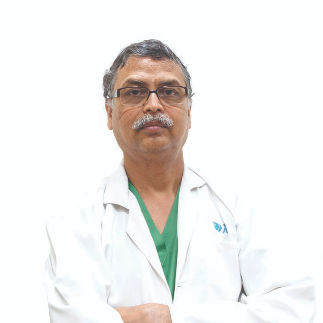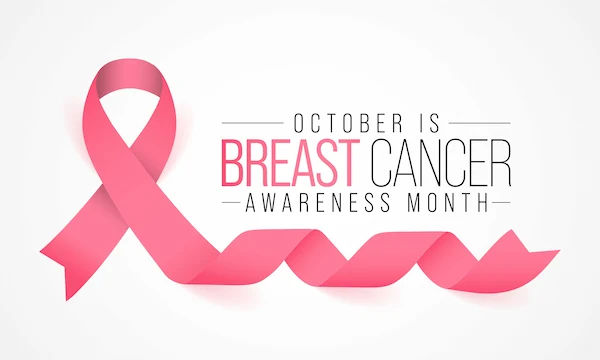Early Detection Strategies for Cancer
Discover effective early detection strategies for cancer, including regular screenings, self-examinations, genetic testing, and recognizing warning signs. Early diagnosis can greatly improve treatment success and survival rates.

.webp?tr=q-80,f-webp,w-350,dpr-2,c-at_max 700w)
Cancer is a disease that affects millions of people worldwide, but the good news is that early detection can significantly improve treatment outcomes and survival rates. Finding cancer at an early stage—before it spreads—often means more effective treatment options and a better quality of life.
In this article, we’ll discuss why early detection matters, the best screening methods available, and simple steps you can take to stay proactive about your health.
Why Early Detection Matters?
Cancer develops when abnormal cells grow uncontrollably. If caught early, treatment can often remove or control these cells before they spread to other parts of the body. Here’s why early detection is crucial:
- Higher Survival Rates: Many cancers, like breast, cervical, and colorectal cancer, have high cure rates when detected early.
- Less Aggressive Treatment: Early-stage cancer may require less intensive treatment compared to advanced stages.
- Better Quality of Life: Early intervention can prevent complications and improve long-term health.
Common Cancers and Their Screening Tests
Different cancers require different screening approaches. Here are some of the most effective early detection methods:
1. Breast Cancer
- Mammogram: Recommended for women aged 40+ (earlier if high risk).
- Breast Self-Exams: Regular checks for lumps or changes.
- Clinical Breast Exams: Done by a healthcare provider.
Consult Top Specialists
2. Cervical Cancer
- Pap Smear (Pap Test): Screens for abnormal cervical cells (recommended every 3-5 years for women aged 21-65).
- HPV Test: Checks for high-risk human papillomavirus (HPV), a leading cause of cervical cancer.
3. Colorectal (Bowel) Cancer
- Colonoscopy: Examines the colon for polyps (recommended every 10 years starting at age 45).
- Stool Tests (FIT, gFOBT): Detects hidden blood in stool (yearly for those at average risk).
4. Prostate Cancer
- PSA Blood Test: Measures prostate-specific antigen levels (discuss with your doctor if you’re a man over 50).
5. Lung Cancer
- Low-Dose CT Scan: Recommended for heavy smokers or former smokers aged 50-80.
6. Skin Cancer
- Skin Self-Exams: Look for new or changing moles.
- Dermatologist Check-ups: Yearly skin exams if at high risk.
Who Should Get Screened?
While screening recommendations vary, here are general guidelines:
- Age: Many screenings start at age 40-50, but earlier if you have risk factors.
- Family History: If a close relative had cancer, you may need earlier or more frequent tests.
- Lifestyle Factors: Smoking, obesity, and alcohol use increase risk.
- Symptoms: Unexplained weight loss, persistent pain, unusual bleeding, or fatigue warrant a doctor’s visit.
Lifestyle Tips to Lower Cancer Risk
While screenings are essential, a healthy lifestyle can also reduce your risk:
- Eat a Balanced Diet: Include fruits, vegetables, whole grains, and lean proteins. Limit processed foods and red meat.
- Stay Active: Aim for at least 150 minutes of moderate exercise per week.
- Avoid Tobacco & Limit Alcohol: Smoking is linked to many cancers. Drink in moderation (if at all).
- Protect Your Skin: Use sunscreen (SPF 30+), avoid tanning beds, and wear protective clothing.
- Get Vaccinated: HPV and Hepatitis B vaccines can prevent certain cancers.
When to See a Doctor?
If you notice any of the following, consult a healthcare professional:
- A lump or unusual swelling
- Persistent cough, hoarseness, or difficulty swallowing
- Unexplained weight loss
- Changes in bowel or bladder habits
- Unusual bleeding or discharge
Conclusion
Cancer can be scary, but knowledge and early action are your best defences. Regular screenings, a healthy lifestyle, and awareness of your body’s changes can make all the difference. Early detection saves lives. If you’re due for a cancer screening or have concerns about symptoms, don’t wait. Apollo24|7 makes it easy to book consultations and tests from the comfort of your home.
Consult Top Specialists
Consult Top Specialists

Dr. Rupam Manna
Radiation Specialist Oncologist
4 Years • MBBS MD(RADIO THERAPY)
Barasat
Diab-Eat-Ease, Barasat

Dr Gowshikk Rajkumar
Oncologist
10 Years • MBBS, DMRT, DNB in Radiation oncology
Bengaluru
Apollo Clinic, JP nagar, Bengaluru

Dr. Amit Choraria
Surgical Oncologist
18 Years • MBBS, MS (Surgery) Fellow, Surgical Oncology, Tata Medical Center (FSO) Fellow, European Board of Surgery (Surgical Oncology) (FEBS) Fellow, Minimal Access Surgery (FMAS) Fellow, Indian Association of Gastrointestinal Endosurgeons (FIAGES) UICC Fellow, Royal Marsden NHS, London, UK Visiting Scholar, Plastic Reconstructive Surgery, CGMH, Taiwan Fellow, Robotic Surgical Oncology, Vattikuti Foundation, USA
Kolkata
Apollo Multispeciality Hospitals , Kolkata, Kolkata
(50+ Patients)

Dr. Praveen Kumar Garg
Surgical Oncologist
26 Years • MBBS, M.S.(Gen.Surg.), M.Ch.(OncoSurg.)
Delhi
Apollo Hospitals Indraprastha, Delhi
(50+ Patients)

Dr. Gopal Kumar
Head, Neck and Thyroid Cancer Surgeon
15 Years • MBBS, MS , FARHNS ( Seoul, South Korea ), FGOLF ( MSKCC, New York )
Delhi
Apollo Hospitals Indraprastha, Delhi
(25+ Patients)
Consult Top Specialists

Dr. Rupam Manna
Radiation Specialist Oncologist
4 Years • MBBS MD(RADIO THERAPY)
Barasat
Diab-Eat-Ease, Barasat

Dr Gowshikk Rajkumar
Oncologist
10 Years • MBBS, DMRT, DNB in Radiation oncology
Bengaluru
Apollo Clinic, JP nagar, Bengaluru

Dr. Amit Choraria
Surgical Oncologist
18 Years • MBBS, MS (Surgery) Fellow, Surgical Oncology, Tata Medical Center (FSO) Fellow, European Board of Surgery (Surgical Oncology) (FEBS) Fellow, Minimal Access Surgery (FMAS) Fellow, Indian Association of Gastrointestinal Endosurgeons (FIAGES) UICC Fellow, Royal Marsden NHS, London, UK Visiting Scholar, Plastic Reconstructive Surgery, CGMH, Taiwan Fellow, Robotic Surgical Oncology, Vattikuti Foundation, USA
Kolkata
Apollo Multispeciality Hospitals , Kolkata, Kolkata
(50+ Patients)

Dr. Praveen Kumar Garg
Surgical Oncologist
26 Years • MBBS, M.S.(Gen.Surg.), M.Ch.(OncoSurg.)
Delhi
Apollo Hospitals Indraprastha, Delhi
(50+ Patients)

Dr. Gopal Kumar
Head, Neck and Thyroid Cancer Surgeon
15 Years • MBBS, MS , FARHNS ( Seoul, South Korea ), FGOLF ( MSKCC, New York )
Delhi
Apollo Hospitals Indraprastha, Delhi
(25+ Patients)


